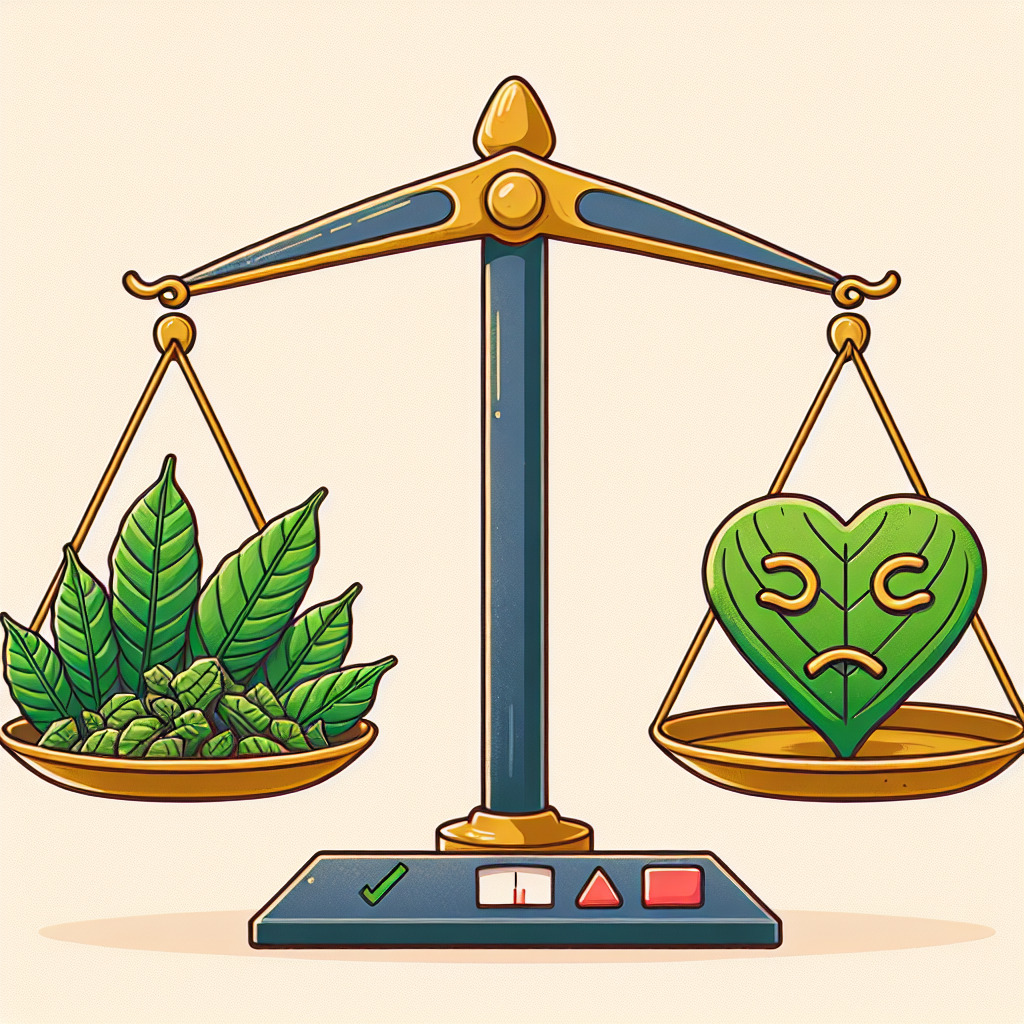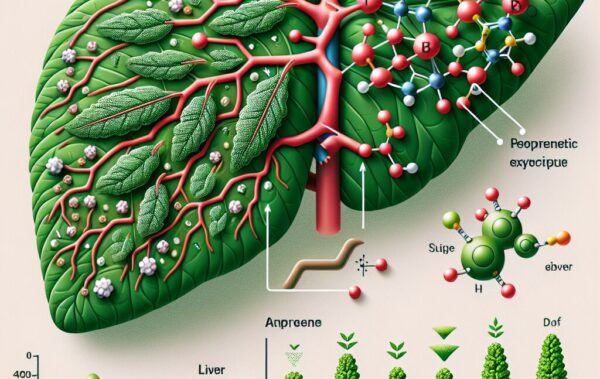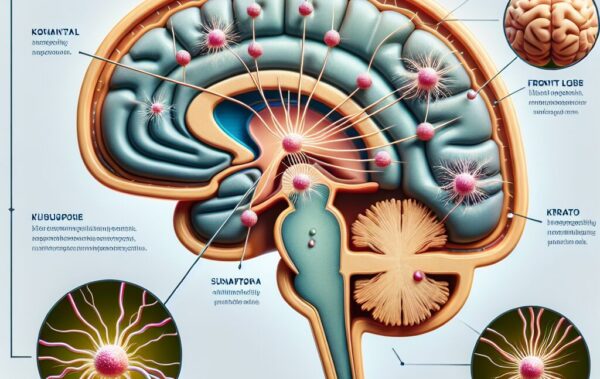- Understanding kratom and its active compounds
- Kratom’s effects on the body’s hunger signals
- Anecdotal evidence of appetite suppression
- Scientific research on kratom and appetite control
- Potential implications for weight management
Kratom, hailing from the Mitragyna speciosa tree native to Southeast Asia, has been traditionally used for its medicinal and psychoactive properties. The leaves of this tropical evergreen tree contain a complex array of alkaloids, which are the active compounds responsible for kratom’s diverse effects. Among these, mitragynine and 7-hydroxymitragynine are considered to be the most prominent and are often the focus of research for their potential impact on the human body.
The curious case of kratom’s interaction with bodily systems begins at the molecular level. Alkaloids from kratom can interact with a variety of neurotransmitter systems, but they are particularly noted for their affinity towards the body’s opioid receptors. While it’s common to associate opioid receptors solely with pain relief and euphoric effects, they also play a role in regulating gastrointestinal activity, which could extend to influencing appetite signals.
Moreover, kratom’s action is not limited to its interaction with opioid receptors. This intricate botanical also affects other neurotransmitter systems, such as those involving adrenergic, serotonergic, and dopaminergic pathways. Each of these systems influences a multitude of physiological processes, including mood, energy levels, and, as recent interest suggests, appetite suppression.
The relationship between kratom consumption and appetite might seem counterintuitive when considering typical opioid effects, which often include increased consumption of food due to hedonic eating. However, kratom seems to depart from this pattern. Users frequently report a decreased desire to consume food, citing a sensation of fullness and reduced cravings. Although kratom is often sought after for its analgesic and mood-enhancing properties, the unexpected byproduct of appetite suppression has garnered attention and curiosity.
Numerous factors can influence this appetite-regulating effect, including the strain of kratom, the dosage, and individual metabolic differences among users. For instance, strains categorized under the white vein kratom variety are often associated with energetic qualities and might have a different impact on hunger signals compared to red vein strains, which are typically sought for their relaxing effects. It is not unreasonable to speculate that these varying experiences with kratom could tie back to unique alkaloid profiles exerting different actions on neurotransmitter systems involved in the sensation of hunger.
In conclusion, the case of kratom and appetite suppression potentially opens up a novel avenue for those interested in weight management or struggling with excessive eating habits. Recognizing the complexity of kratom’s pharmacology is crucial in understanding how this plant can affect appetite and the potential it holds for those seeking to modulate their dietary intake. As we delve further into this topic, it’s important to consider how individual differences in kratom use play a significant role in this multifaceted interaction.
Kratom’s effects on the body’s hunger signals
Kratom’s multifaceted interaction with the body’s hunger signals is indeed a curious case that has intrigued many. As a substance that can invoke both stimulatory and sedative effects depending on the dosage and strain, kratom’s role in appetite suppression stands out as a rather unique property among its various uses. The experience of decreased hunger is frequently mentioned alongside its more commonly noted effects such as pain relief and mood elevation.
But how exactly does kratom influence hunger signals? The answer lies within the intricate dance between kratom’s alkaloids and the body’s complex neurotransmitter systems. When kratom is consumed, its alkaloids can act as partial agonists at the opioid receptors in the central nervous system. Now, these receptors are not only involved in responding to pain but also in regulating a variety of other physiological processes, including the release of hormones that control appetite.
By influencing these opioid receptors, kratom may affect the release of ghrelin and other peptides that signal hunger to the brain, leading to a potential reduction in the urge to eat. Even though kratom interacts with the same receptor sites commonly associated with hunger and food intake, it curiously does not seem to induce the expected increase in appetite. Instead, it appears to produce an appetite-suppressing effect in many individuals.
Another aspect to consider is kratom’s impact on dopamine, a neurotransmitter associated with reward pathways and the enjoyment of food. Kratom could possibly alter the hedonic value of food intake, potentially making eating less rewarding and thereby diminishing craving and snacking behaviors that often contribute to weight gain.
The suppression of appetite might also be linked to the plant’s energetic and mood-boosting effects, particularly with strains like Maeng Da and those under the white vein category. The increase in energy and focus provided by certain strains of kratom, like those found in the Maeng Da kratom powder line, could also lead to a natural decline in food intake as users become more engaged in activities, subsequently diverting their attention away from eating.
In contrast, the more calming strains, such as those among the red vein kratom selections, could potentially produce an appetite-suppressing effect by promoting a state of relaxation that decreases stress-induced eating. Moreover, the sensation of well-being and satiation that typically accompanies kratom use could result in lower food intake due to the feeling of contentment, minimizing the emotional triggers that often lead to overeating.
These effects could open up potential avenues for kratom use in the context of weight management. However, with such a delicate balance at play, it is essential for individuals to approach kratom with cautious consideration, recognizing that the effects can vary greatly from person to person.
The curious case of kratom and appetite suppression draws a picture of a naturally occurring substance with a complex interaction within the human body. Its potential applications extend far beyond its native uses, touching upon contemporary issues like weight management and dietary control. With continuing research and personal testimonials accumulatively painting a broader understanding, kratom remains a fascinating subject within the nutritional and herbal supplement spheres.
Anecdotal evidence of appetite suppression
When delving into the topic of kratom and its effects on appetite, the personal experiences and testimonies from regular kratom users are particularly illuminating, offering a firsthand glimpse into the potentially curious case of appetite suppression. Individuals who incorporate kratom into their routine often report a noticeable decrease in their desire to eat, which some consider a welcome side effect, especially when managing weight is a concern.
Anecdotes across various online forums and communities where kratom enthusiasts gather shed light on this phenomenon. Users commonly describe a sense of fullness or a loss of appetite following kratom ingestion, sometimes lasting several hours. This anecdotal evidence suggests that the appetite-suppressing effects may be quite pronounced for some, with people reporting a distinct lack of interest in food, even during typical mealtimes.
However, these personal accounts are as diverse as the individuals offering them. Some kratom users experience a mild suppression of hunger, while others find themselves skipping meals altogether. This variance could be due to a number of factors, such as the specific strain of kratom used, the amount taken, and personal metabolism, among other things. For instance, a user taking a dose of a green vein variety may have a different experience from someone using a kratom capsule of a red vein strain.
- Users often describe consuming kratom as creating a feeling of being sated, pushing meal thoughts to the background.
- Many observe that kratom helps curb snacking habits, particularly those related to stress or boredom eating.
- Some report choosing to take kratom at specific times to strategically reduce hunger, such as before a social event known for heavy foods.
It is essential to note that these accounts are subjective and do not represent a universal experience. The spectrum of responses to kratom’s potential appetite-suppressing properties highlights the necessity for further scientific examination to understand the mechanisms at play.
The growing repository of these anecdotal reports serves not only as a testament to the complex nature of kratom’s effects on the body but also as an invaluable resource for those seeking to explore its potential benefits in the realm of appetite control. Yet, it’s important to approach such evidence with caution and to ideally corroborate personal anecdotes with robust scientific inquiry.
Kratom’s ability to influence appetite adds to its mysterious profile – a botanical maverick of sorts; at once energizing and calming, pain-relieving, and now possibly, an appetite suppressant. Whether looking to explore kratom’s many strains, such as through grooming the various options available on marketplaces like kratom product aggregators, or simply seeking to understand the possible impacts of its consumption, it’s clear that kratom’s interaction with our physiological processes remains a captivating subject for both users and researchers alike.
Scientific research on kratom and appetite control
 When it comes to the scientific research surrounding kratom and its effects on appetite control, the landscape is only just beginning to take shape. Unlike anecdotal evidence offered by individual users, which is plentiful, research studies are fewer and far-reaching conclusions are yet to be drawn. Nevertheless, several studies have hinted at potential mechanisms by which kratom might exert its appetite-suppressing effects.
When it comes to the scientific research surrounding kratom and its effects on appetite control, the landscape is only just beginning to take shape. Unlike anecdotal evidence offered by individual users, which is plentiful, research studies are fewer and far-reaching conclusions are yet to be drawn. Nevertheless, several studies have hinted at potential mechanisms by which kratom might exert its appetite-suppressing effects.
One aspect of research focuses on the alkaloid content of kratom and how these compounds interact with various receptors in the body. Preclinical studies suggest that the alkaloids in kratom, particularly mitragynine, influence receptors that are also involved in food intake regulation. For example, mitragynine has been found to exhibit anxiolytic effects in animal models, which may indirectly contribute to a decrease in stress-related eating behaviors.
Another avenue of research examines kratom’s impact on the sympathetic nervous system. By stimulating the release of adrenaline and noradrenaline, kratom might enhance the body’s fight or flight response, a state that is generally not conducive to eating. In this respect, kratom may act similarly to other stimulants that are known to suppress appetite.
Furthermore, a comparative study looking at traditional uses of kratom in its native regions versus Western contexts could yield insights into whether appetite suppression is a primary or secondary effect. Such research might scrutinize dietary patterns and frequency of use among various populations to further clarify this relationship.
Alongside the exploration of kratom’s pharmacokinetics, there is a burgeoning interest in the potential therapeutic applications of its appetite suppressant properties. For instance, could kratom serve as an alternative to traditional appetite suppressants that often come with a host of side effects? Could it play a role in managing conditions related to overeating or even eating disorders? Investigations on these fronts remain speculative but are a clear indication of the curious case kratom presents to the scientific community.
| Study Focus | Key Findings |
|---|---|
| Alkaloid Interaction with Receptors | Potential regulation of appetite through activation of anxiolytic receptors |
| Impact on the Sympathetic Nervous System | Enhancement of the fight or flight response which may suppress appetite |
| Comparative Cultural Usage Studies | Insights into the primary versus secondary nature of appetite suppression |
| Therapeutic Applications Exploration | Potential use in treatment of overeating or eating disorder conditions |
In conclusion, while personal anecdotes about the effects of kratom on appetite are intriguing, the case for kratom as an appetite suppressant needs more empirical backing. A greater number of controlled studies, particularly in human subjects, are necessary to fully understand and validate the appetite-suppressing qualities of this complex botanical. The delicate balance kratom strikes between stimulant and sedative effects, and its potential as a tool for weight management has opened an exciting frontier for scientific exploration.
As researchers continue to unearth the mechanisms behind kratom’s diverse effects, consumers might look to reputable sources like kratom extract products or other such offerings from reliable vendors in the interim. With a careful and discerning approach, the curious relationship kratom has with appetite suppression will no doubt become clearer, shaping its potential future role in health and nutrition.
Potential implications for weight management
With its multifaceted effects on energy, mood, and pain relief, kratom has already established a reputation for its ability to impact various physiological and psychological aspects of the human experience. But when it comes to weight management, the potential implications of kratom’s appetite suppression are particularly compelling. As obesity and related health issues continue to be significant concerns worldwide, understanding and leveraging the appetite-modulating properties of kratom could potentially offer an alternative approach to managing weight and improving overall health.
For those exploring weight management strategies, the curious case of kratom’s appetite suppression may offer a two-fold benefit. Not only can reduced appetite lead to a decrease in caloric intake, but the energy-boosting effects of certain kratom strains could encourage more physical activity. Combined, these factors may help individuals achieve a caloric deficit, which is a key component in weight loss.
However, an important consideration in the potential use of kratom for weight management is the sustainability and safety of its appetite suppressant effect. Weight management ideally involves long-term lifestyle changes, and it is not yet clear if chronic kratom use is advisable for this purpose. There is a thin line between beneficial appetite suppression and potential malnutrition or unhealthy weight loss.
Additionally, given that the appetite-suppressing effects of kratom may differ from person to person, there is a need for personalized approaches. Some may find that certain strains, like those under the green vein kratom category, are more effective for appetite control without overstimulation. Others may lean towards red vein kratom capsules for their more subtle, relaxing effects that also help reduce the likelihood of stress-eating.
Furthermore, as the use of kratom becomes more prevalent in Western countries, so does the legal and regulatory landscape change. With this in mind, it is pivotal for consumers to stay informed about their local laws, as well as the potential risks and benefits of kratom use, particularly in relation to appetite suppression and weight management.
In the quest for weight loss solutions, many individuals turn to prescription medications or undergo surgical interventions, which can have significant side effects and risks. If future research supports the anecdotal evidence and preliminary scientific findings regarding kratom’s role in reducing appetite, it could become a natural alternative that provides a less invasive option for weight control. Nevertheless, it is imperative that kratom, like any other supplement potentially used for weight management, is used responsibly and under the guidance of healthcare professionals.
The curious case of kratom continues to unfold, with appetite suppression merely one chapter in an ongoing story of discovery. As we await further clinical trials and scientific validation, those interested in experimenting with kratom’s appetite-suppressing properties should do so with mindfulness and caution, while also embracing the complexity of personal health and nutrition needs.
In summary, the intersection of kratom and weight management invites a promising perspective but also calls for a balanced approach that takes into account the intricacies of individual health, the necessity for scientific validation, and the evolving dialogue around natural dietary supplements. With thoughtful consideration and research, kratom may indeed find its place in the array of tools available to those journeying towards better health and wellness.









